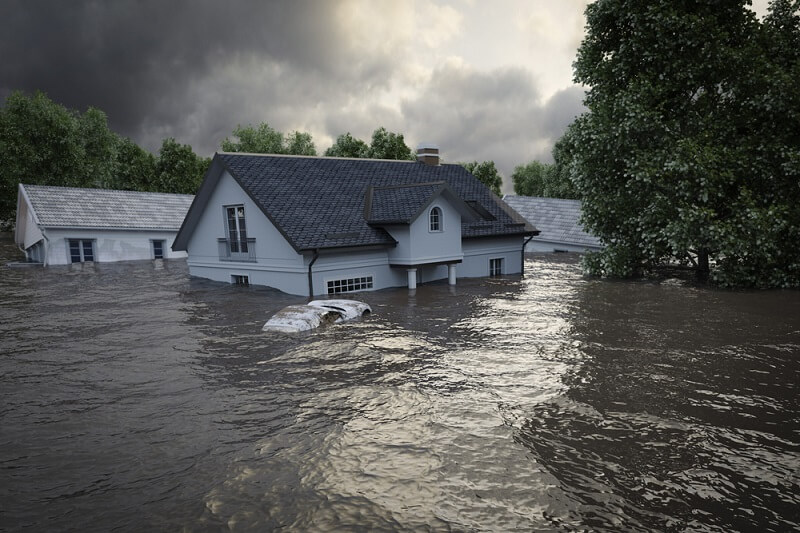What is flood insurance?
Flood insurance (FI) is a coverage policy that provides the financial cost for damages incurred by water damage, specifically due to flooding. Various policies are available for residential and commercial properties and are administered through the federal government.
This type of policy covers direct physical damage due to floods and losses resulting from flood-related erosion. It includes all damages caused by waves and water currents that exceed the normal levels, accompanied by a severe storm, flashes, abnormal tide surge, or other natural situations that result in flooding.
Is FI available in my area?
For any community to be able to provide flood insurance to its inhabitants, they must adopt and enforce a floodplain management ordinance stating the rules governing the mode of construction in the flood-prone areas. After fulfilling the requirements and following the necessary rules, the government makes insurance available within that community. Homeowners need to check if their community is eligible for this insurance. It may be costly to assume that if a community has no record of floods, there is no probability of a future occurrence. There is no way to guarantee that a community is exempted from the risks of a flood.
What does it cover?
Homeowners should reach out to their providers to get precise coverage details of their policy. Some insurance companies provide coverage for both the structure and its contents. Coverage content is optional or exempted in some cases, so it is best to know all the details of how your policy covers your personal property.
Note that your policy doesn't kick in immediately. There is usually a 30-day waiting period before coverage begins. This is not a hard and fast rule, as there are certain exceptions, specifically during a mortgage transaction. If you want to secure a mortgage, your lender will likely ask that you purchase a flood insurance policy, especially if your home is located in an area that is designated as a flood zone.
A financially-savvy decision will be to ensure that your coverage limit is equal to your property's rebuilding cost, or the maximum limit of coverage available to you.
What does it not cover?
It is a flood insurance myth that it covers all damages to your property caused by a flood. This isn't the case, especially for those that tend to exceed the coverage limit. Typically, government-issued flood insurance will not cover the following types of damage:
- Water disaster that covers up the entire building
- Damages to gas and liquid storage tanks
- Injuries to animals
- Destruction to aircraft
- Damage to wharves, piers, bulkheads, growing crops, shrubbery
- Land or road destruction
- Machinery or equipment in the open
- Damage to automobiles
How much does it cost?
As with all insurance policies, the cost of your policy is largely dependent on the specifics of the insured property. Your provider considers many things before determining a premium rate. If your home or business is in a high-risk area, like a special flood hazard area, your rate will be higher than those in low- or moderate-risk zones.
The company also considers the age of the building, how many floors it has, the location of its contents, deductibles, and more. Homeowners or business owners that have installed safety equipment like fire extinguishers or smoke detectors are likely to pay less than buildings with no safety installations.
If your community has taken active steps to reduce the risks of flood, you could be entitled to a discount or subsidized rate. An elevated home is also entitled to a cheaper rate because it is only the foundation that is exposed to flooding. Elevating your installations like heating and cooling systems, and water heaters means that they are less likely to be damaged in a flood. This can translate to savings for you!
If you have further questions about standard homeowners policies and supplemental coverage, contact the experts at
Club Agency Insurance Brokerage in Garden City, New York today. We are ever willing to assist you with all your coverage needs.



